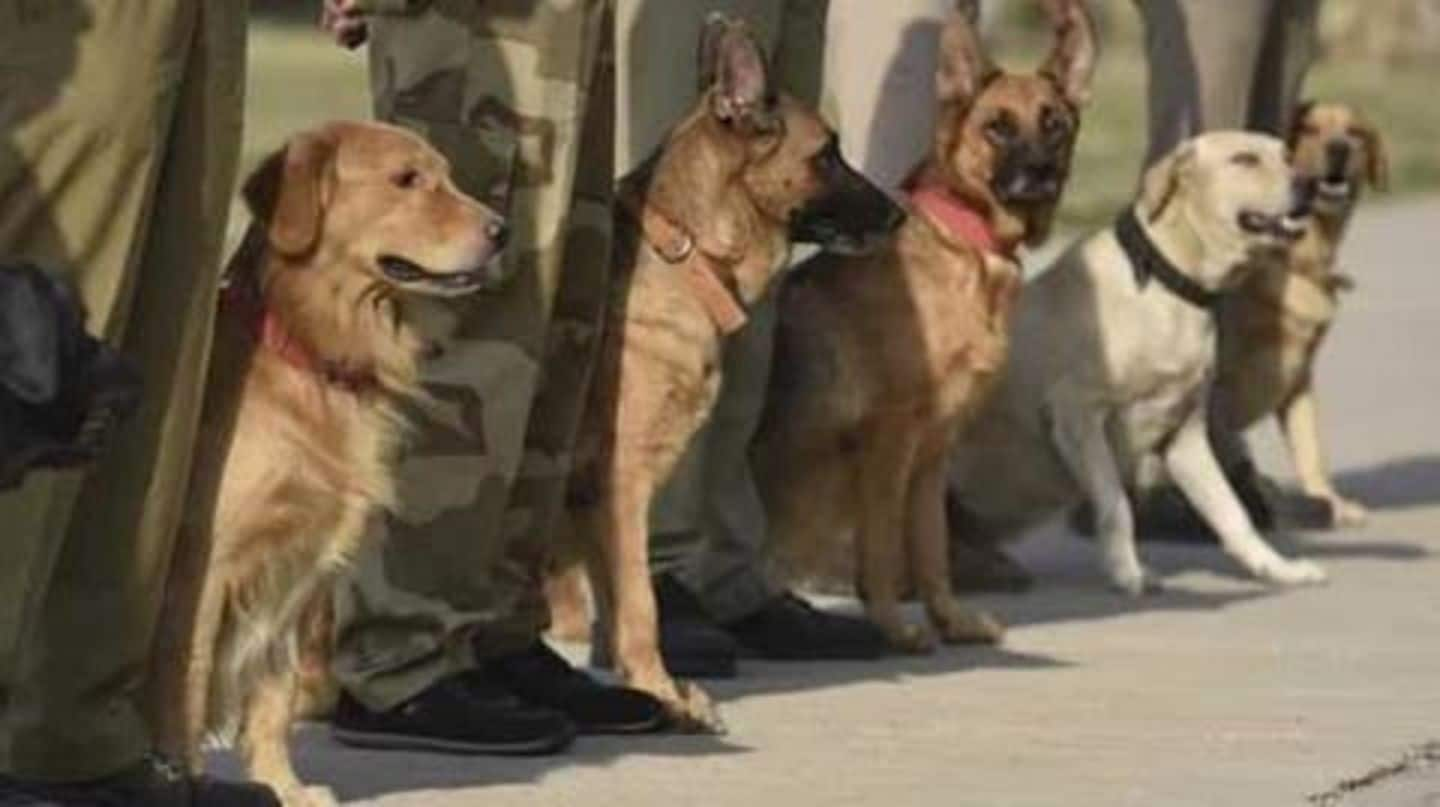Soon, robotic dogs could replace CISF's security dogs at airports
What's the story
While the CISF currently uses dogs - German Shepherds, Labradors, and Belgian Malinois - for airport security, that could soon be a thing of the past.
In their stead, robotic canines are slated to take up the burden of airport security fairly soon.
Further, the CISF might also switch to more technology-intensive modes of baggage scanning.
Here are the details.
Details
Robotic dogs would be able to detect explosives, scan luggage
The possibility of using factory-made 'robotic canines' surfaced at the Global Aviation Security Symposium 2018, held at Montreal, Canada.
The conference was attended by CISF DG Rajesh Ranjan Additional DG M A Ganapathy, both of whom oversee security at India's airports.
The robotic dogs, reportedly, would be able to 'sniff' out explosives, as well as scan X-ray scan luggage with their eyes.
Baggage screening
CT scan-based baggage screening tech was also discussed
Further, the CISF also discussed the use of CT scan-based luggage screening.
This is particularly important, given that the CISF currently depends on a lot of manpower for baggage screening at airports, and such efforts at security are slated to get more difficult increasing numbers of people taking to the skies, and novel methods of smuggling explosives, drugs etc. coming up.
Participation
CISF's first-ever participation at the ICAO symposium
Notably, this was the first time that the CISF has participated in a global aviation security summit organized by the International Civil Aviation Organization (ICAO).
If reports are to be believed, CISF's participation was fruitful too, and the security agency held bilateral discussions with European Union nations and other ICAO members on capacity building initiatives, with an aim to implement the new technology.
Quote
CISF now has pacts with US' TSA, and the EU
"We already have a tie-up with the Transport Security Administration (TSA) of the United States but now we have a capacity building pact with the EU as well, which will help us explore a lot about new technologies and methods of securing our airports," a CISF official told TOI.
